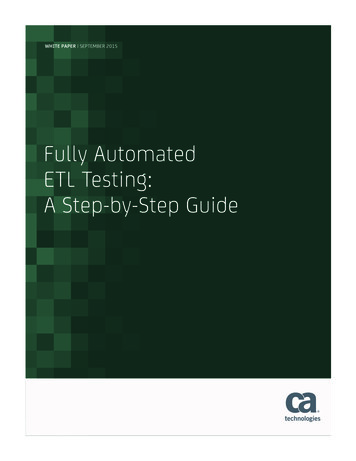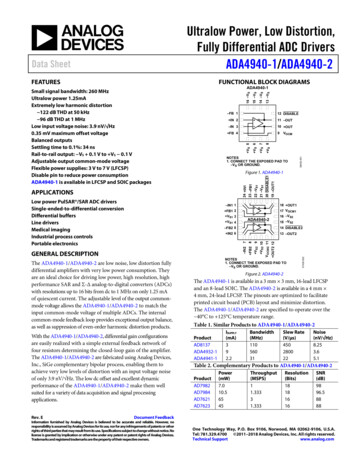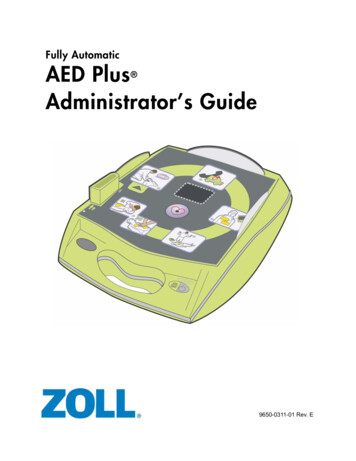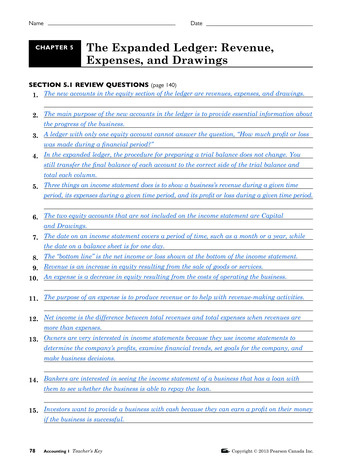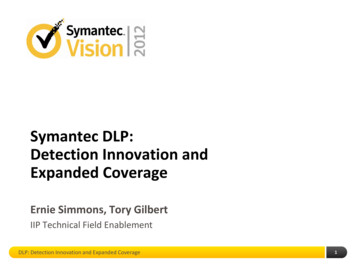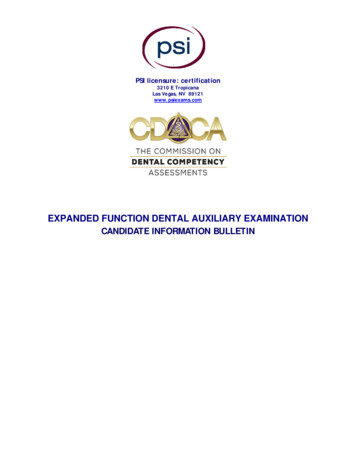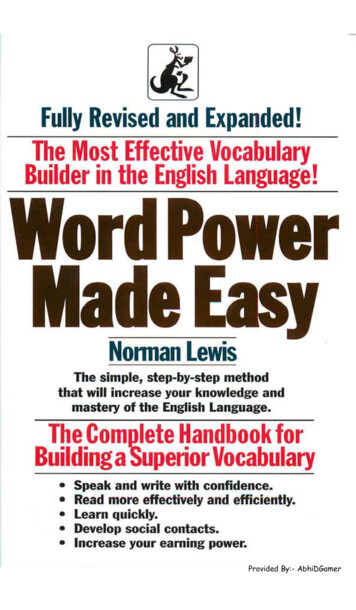
Transcription
Fully Revised and Expanded!VocabularyThe Most EffectiveBuilder in the English Language!Word Powerlade EasyNonnan LewisThe simple, step-by-step methodthat will increase your knowledge andmastery of the English Language.The Coml!lete Handbook forBuilding aSuperior Vocabulary Speak and write with confidence.Read more effectively and efficiently.Learn quickly.Provided By:- AbhiDGamerDevelop social contacts.Increase your earning power.
TEST YOUR VOCABULARY RANGEEa,ch of these phrases contains one italicizedword. Check the closest definition of eachsuch word. To keep your score valid, refrain,as far as possible, from wild guessing.1. ance: (a) untidy, (b) fierce, (c) foolish, (d)pecul"ar, (e) unhappya baffling problem: (a) difficult, (b) simple, (c) puzzling, (d)long, (e) newlenient parent: (a) tall, (b) not strict, (c) wise, (d) foolish,(e) severerepulsive personality: (a) disgusting, (b) attractive, (c) normal,(d) confused, (e) conceitedaudacious attempt: (a) useless, (b) bold, (c)foolish, (d) crazy,(e) necessaryparry a blow: (a) ward off, (b) fear, (c) expect, (d) invite,(e) ignoreprevalent disease: (a) dangerous, (b) catching, (c) childhood,(d) fatal, (e) widespreadominous report: (a) loud, (b) threatening, (c) untrue, (d)serious, (e) unpleasantan incredible story: (a) true, (b) interesting, (c) well-known,(d) unbelievable,- (e) unknownan ophthalmologist: (a) eye doctor, (b) skin doctor, (c) footdoctor, (d) heart doctor, (e) cancer specialistwill supersede the old law: (a) enforce, {b) specify penaltiesfor, (c) take the place of, {d) repeal, (el continuean anonymous donor: (a) generous, (b) stingy, (c) well-known,(d) one whose name is not known, (e) reluctantperformed an autopsy: (a) exam.ination of living tissue, (b)examination of a corpse to determine the cause of death, (c)process in the manufacture of optical lenses, (d) operationto cure an organic disease, (e) series of questions to determinethe causes of delinquent behavioran indefatigable worker: (a) well-paid, (b) tired, (c) skillful,(d) tireless, (e) pleasanta confirmed atheist: (a) ba:helor, (b) disbeliever in God, (c)believer in religion, (d) believer in science, (e) priest
Books by Norman Lewis30 Days to a More Powerful Vocabulary(written with Wl1fred Funk)Word Power Made EasyPublished by POCKET BOOKS
-Norman LewisWord PowerMade EasyThe Complete Handbook forBuilding A Superior VocabularyExpanded and Completely Revised EditionPOCKET BOOKSNew York London Toronto Sydney
The sale of this book without its cover is unauthorized. If you purchasedthis book without a cover, you should be aware that it was reported tothe publisher as "unsold and destroyed." Neither the author nor thepublisher has received payment for the sale of this "stripped book .For information regarding special discounts for bulk purchases,please contact Simon & Schuster Special Sales at1-800-456-6798 or business@simonandschuster.comThe extract from "Be a Perfect Speller in 30 Minutes," by Norman Lewis, iscopyright, 1946, by Esquire, Inc. Reprinted from February 1946 Coronet.The extract from "How to Spell a Word," by Norman Lewis, is copyright, 1948,by Esquire, Inc. Reprinted from January 1949 Coronet.The extract from "Mind Over Grammar," by Norman Lewis, is copyright, 1947,by Fawcett Publications, Inc.The extract from "Can You Catch a Misspelled Word," by Norman Lewis, iscopyright, 1948, by Fawcett Publications, Inc.The extract from "Watch That Word," by Norman Lewis, is copyright, 1948, byFawcett Publications, Inc.POCKET BOOKS, a division of Simon & Schuster, Inc.1230 Avenue of the Americas, New York, NY I 0020Copyright 1949, 1978 by Norman LewisAll rights reserved, including the right to reproducethis book or portions thereof in any form whatsoever.For information address Doubleday and Company, Inc.,245 Park Avenue, New York, NY 10017ISBN -13: 978-0-671-74190-7ISBN -10:0-671-74190-XFirst Pocket Books printing(rcvi cdedition)Augu t 197950 49 48POCKET and colophon are registered trademarks ofSimon & Schuster, Inc.Printed in the U.S.A.
TO:My family and friends, who accepted, without apparent resentment and with barely audible complaint, my complete self-isolation during the many months in which I totally and shamefullyneglected them while working on the revision of this book.Especially: Mary; Margie Baldinger and the kids; Debbie andAllen Hubbert; Milton Lewis; Karen and Bob Kopfstein; LeonardVogel, one of America's great painters, and Shirley; gourmetcooks David and Janice Potts; Seymour and Nan Prog; Ruth andLeo; Dave and Jan Hopkins; Carol and Mazyin Colter; Bob Finnerty, my chess opponent, who says that winning is all thatcounts; Doris Garcia; Eleanor and Robert Poitou; Mary El andDick GaymanWalter Garcia, Len Grandy, Don Jenkins; Sally Landsburg;Ted and Margaret Snyder; Jean Bryan; Rhoda and Ralph Duenewald; George and Phyllis Juric; Bob and Monica Myers, Tonyand Kathy Garcia, Jean Kachaturian; Margie Lopez and Jo WatsonMyrtle and Ace, Donny and Estelle, Helen and Ben, Judy andBob, Doris and Muriel, Danny and Mary; in memoriam, Max andFrancesLarry Scher, Chuck Nichamin, Sue Sullivan, Rosemary andDebbie Greenman, Alice Hessing, Dave and Lynn Bisset, DannyHernandez, John Arcadi and Peggy Arcadi, Norm Ashley, AaronBreitbartLorin and Gloria Warner, Marty and Ros Chodos, Mahlon andGwen Woirhaye, Leon and Kay East, Marijane and Paul Paulsen,Helen and Russ Hurford, Elior and Sally Kinarthy
Carolyn Russell, Rod Sciborski, Vera Laushkin, John Hahn,Liz Johnson, Leonora Davila, Jim Hawley, Jerry Lenington, JayLoughran, Susan Obler, Marilyn Houseman, Rita Scott, ChrisHamilton, Joan Nay, Mary Lewis, Virginia Sandoval, HazelHaasThe staff and all my students at Rio Hondo CollegeMy editor at Doubleday, Jean Anne Vincent, who so patientlyanq cheerfully goaded, prodded, pushed, wheedled, and cajoledme into finishing on time.Also: I wish to thank Karen Kopfstein and Peggy Chulack fortheir promptness and care in typing the manuscript.Whittier, CaliforniaJanuary 1978
CONTENTSHow toUseThis Bookfor Maximum BenefitxvWhy this is not a book to be read; how tolearn to pronounce the new words correctly; how the etymological approachworks better than any other method forlearning words quickly .and permanently;how to master nouns, verbs, adjectives,and adverbs in five to ten minutes; how touse the psychological principles of learningto sharpen your verbal skills.PART ONEGETIING OFF TO A GOOD START1. How to Test Your Present Vocabulary3How vocabulary growth of the averageadult compares with that of children; asimple. test to show you whether your vocabulary is below average, average, aboveaverage, excellent, or superior in range,verbal speed, and responsiveness; important evidence of the close relationship between vocabulary and success.vii
2. How to Start Building Your Vocabulary19How building your vocabulary will enrichyour thinking, increase your self-assurancein speaking and writing, and give you abetter understanding of the world and ofyourself; why it is necessary to recapturethe "powerful urge to learn"; why your agemakes little difference; how this book isdesigned to build a college-size vocabularyin two to three months.3. How to Talk about Personality Types(Sessions 1-3)26Words that describe all kinds and sorts ofpeople, including terms for self-interest, reactions to the world, attitudes to others,skill and awkwardness, marital states,hatred of man, of woman, and of marriage.How one session of pleasant work can addmore words to your vocabulary than theaverage adult learns in an entire year; whyit is necessary to develop a comfortable·time schedule and then stick to it.4. How to Talk About Doctors (Sessions 4-6)54Words that relate to medical specialistsand specialties. Terms for experts in disorders of the female organs; childhooddiseases; skin ailments; skeletal deformities; heart ailments; disorders of thenerves, mind, and personality. How selfdiscipline and persistence will ultimatelylead to complete mastery over words.viii
S. How to Talk About Various Practitioners81(Sessions 7-10)Words that describe a variety of professions, including those dealing with thehuman mind; teeth; vision; feet; handwriting; aging; etc. How you are becomingmore and more conscious of the newwords you meet in your reading.6. How to Talk About Science and Scientists(Sessions 11-13)115Words that describe students of humandevelopment, of the heavens, of the earth,of plant and animal life, of insect forms,of words and language, of social organization. Books on psychology that will addimiileasurably both to your store of newwords and ideas, and also to your understanding of yourself and of other people.7. How to Talk About Liars and Lying(Sessions 14-17)148Words that accurately label different typesof liars and lying. Terms that relate tofame, artistry, reform, heredity, time,place, suffering, etc. Four lasting benefitsyou have begun to acquire from your workin vocabulary building.8. How to Check Your Progress: ComprehensiveTest I (Session 18)182A 120-item test of your learning in Part I.ix
PART TWOGAINING INCREASED MOMENTUM9. How to Talk About Actions(Sessions 19-23)191Verbs that accurately describe importanthuman activities. Excursions into expressive terms for good and evil, doing, saying,wishing, and pleasing. Further proof thatyou can learn, in a few weeks or less, morenew words than the average adult learns inan entire year.10. How to Talk About Various Speech Habits(Sessions 24-27)239Words that explore in depth all degreesand kinds of talk and silence. More booksthat will increase your alertness to newideas and new words.11. How to Insult Your Enemies(Sessions 28-31) ·282Terms for describing a disciplinarian,toady, dabbler, provocative woman, flagwaver, poss essor of a one-track mind, freethinker, sufferer from imaginary ailments,etc. Excursions into words relating tofather and mother, murder of all sorts,sexual desires, and various manias andphobias. Magazines that will help youbuild your vocabulary.12. How to Flatter Your Friends(Sessions 32-37)341Terms for describing friendliness, energy,honesty, mental keenness, bravery, charm,x
sophistication, etc. Excursions into expressive words that refer to ways of eating anddrinking, believing and disbelieving, looking and seeing, facing the present, past,and future, and living in the city andcountry. How the new words you arelearning have begun to influence yourthinking.13. How to Check Your Progress: ComprehensiveTest II (Session 38)392·A 120-item test of your achievement inPart Il.PART THREEFINISHING WITH A FEELING OF COMPLETE SUCCESS14. How to Talk About Common Phenomena andOccurrences (Sessions 39-41)401Words for poverty and wealth, direct andindirect emotions, not calling a spade aspade, banter and other light talk, animallike contentment, homesickness, meat-eating, and different kinds of secrecy. Excursions into terms expressive of goodness, ofhackneyed phraseology, of human similarity to various animals, of kinds of sound,etc. How to react to the new words youmeet in your reading.15. How to Talk About What Goes On(Sessions 42-44)451Verbs that show exhaustion, criticism, selfsacrifice, repetition, mental stagnation,xi
pretense, hinting, soothing, sympathizing,indecision, etc. How you can increase yourvocabulary by picking your friends' brains.16. How to Talk About a Variety of PersonalCharacteristics (Sessions 45-46)478Adjectives that describe insincere humility,dissatisfaction, snobbery, courtesy towomen, financial embarrassment, sadness,etc. How increasing your vocabulary hasbegun to change the intellectual climate ofyour life.17. How to Check Your Progress: ComprehensiveTest m (Session 47)497A 120-item test of your achievement inPart 111.18. How to Check Your Standing as an AmateurEtymologist504Answers to Teaser Questions in Chapters3-7, 9-12, and 14-16.19. How to Keep Building Your Vocabulary524The five simple, but vital, steps to talce sothat you can keep your vocabulary everdeveloping, ever increasing. How yourvocabulary will continue to grow only ifyou remain on the search for new ideas.The best means for malcing this searchsuccessful.Appendix: Some Esoteric Phobias527xii
BRIEF INTERMISSIONS1. Test Your Grammar51A thirty-sentence test of your ability to usewords correctly. Is your English average,above average, or nearly perfect?.2. Random Notes on Modem Usage76Grammatical usage is becoming more liberal every day-is your speech neitheraffected nor illiterate? Simple rules forfifteen important expressions.3. How Grammar Changes109"Grammar follows the speech habits ofeducated people-how does your· grammarmeasure up in your use of nine commonexpressions?4. How to Avoid Being a Purist143There is no reason for being overprecisein your speech-but do you also avoidbarbarisms and illiterate expressions?xiii
5. How to Speak Naturally234Nine more, expressions of which you mustbe careful.6. Do You Always Use the Proper Word?279A twenty-five sentence check on your increasing linguistic ability.7. Some Interesting Derivations337How words come from the names of peopleand places.8. How to Spell a Word441You can eliminate all your spelling difficulties-provided you know the tricks.9. Take This Spelling Test476Proof that you are 1becoming a betterspeller.10. Another Check on Your Spelling495Further tests to nail home the correct spellings of common but difficult words.xiv
HOW TO USE THIS BOOKFOR MAXIMUM BENEFIT1. this is not a reading book . . Don't read this book!Instead, work with it. Write in it, talk aloud to it, talk back toit-use your pen or pencil, your voice, not just your eyes andmind.Learning, real learning, goos on only through active participation.When a new word occurs in a chapter, say it aloud! (The phonetic respelling will help you pronounce it correctly.)*When you do the matching exercises, use a pen or pencil. Writeyour responses! (Check the key that immediately follows each exercise after you have filled in all the answers.)When you do the "Yes-No," "True-False," or "Same-Opposite"exercises, use your pen or pencil to indicate the appropriate response, then check with the key when you have completed thewhole exercise.When you are asked to fill in words that fit definitions, writeyour answers; then check the key both to see if you have re-* The system of pronunciation symbols will be thoroughly explained inSection 2 of this chapter.xv
sponded with the right word and also to make sure your spelling iscorrect.When you do the Review of Etymology exercises, make sure tofill in the English word containing the prefix, root, or suffixrequired-use a chapter word, or any other word that comes tomind. (Coin words if you like!)Pay special attention to the Chapter Reviews. Aie the wordsstill fresh in your mind? Do you remember the meaning of eachroot studied in the previous sessions? In these Reviews, you arenot only testing your learning but also tightening up any areas inwhich you discover lacks, weaknesses, or lapses of memory.2. master the pronunciation system!Saying words aloud, and saying them right, is half the battle infeeling comfortable and assured with all the new words you aregoing to learn. Every word taught is respelled to show its pronunciation, so pay close attention to how the phonetic symbols work.(a) First, master the "schwa"/Almost every English word of two or more syllables containsone or several syllables in which the vowel sound is said veryquickly. For example:"Linda spoke to her mother about a different idea she had." Read the previous sentence aloud at normal conversationalspeed.Read it again. Listen to how the -a of Linda; the -er of mother,·the a- of about,· the -er and -ent of different; and the -a of ideasound.Very quick-very short! Right?Phonetically respelled, these words are represented as:LIN'-da1. Linda2. motherMU'l'B'-ar3. aboutg-BQWT'· 4. differentDIF'-ar-:mt5. ideai-DEE'-aThe symbol "a," called a schwa, represents the quick, shortvowel sound in the five words above.xvi
Now look back at the sentence preceded by an arrow.The italicized words are rewritten as:1. previousPREE'-vee-as2. sentenceSEN'-ta'ns3. alouda-LOWD'4. normalNAWR'-mal5. conversationalkon'-var-SAY'-shan-alYou will find a in almost all words that are phoneticallyrespelled throughout this book. Say the five italicized words aloudand make sure you understand how the schwa (a) sounds.(b) Next, understand accent.Look at word (5) above: conversational: kon'-var-SAY'-shan-al.Note that there are two accent marks, one on kon', another onSAY'. Note also that kon' is in lower-case letters, SAY' in capitals.Both syllables are stressed, but the one in capitals (SAY') soundsstronger (or louder) than the one in lower case (kon'). Say conversational aloud, noting the difference.Say these three words, taken from Chapter 3, aloud, noticingthe variation in stress between the lower-case and the capitalizedsyllables:1. egomaniacalee'-go-ma-Nl'-a-kal2. l3. anthropological( c) Be careful of the letter "S" (or "s'') in phonetic respellings.S (ors) is always hissed, as fo see, some, such. After an -n, youwill be tempted to buzz (or "voice") the -s, because final -ns isusually pronounced -nz, as in wins, tons, owns, etc. (Say thesethree words aloud-hear the z at the end?) Resist the temptation!S (or s) is always hissed in phonetic respellings!Say these words aloud:1. ambivalencetam-BIV'-a-lans2. affluenceAF'-1 -ans3. opulenceOP'-y fons4. sentenceSEN'-tanst All unusual words in this chapter are taught in later chapters of the book.xvii
(d) The symbol i or l is pronounced eye, to rhyme with high,sigh, my, etc., no matter where you find it. For example:1. fightsFITS2. spy·sp13. malignma-LIN'4. civilizeSIV'-a-Iiz'[I or i (without the top bar) is pronounced as in it, sit, pitch.]( e) All consonants have their normal sounds.Except for G (or g), which is always pronounced as in give,girl, get, go.1. agree2. pagan3. again:;i-GREE'PAY'-gana-GEN'(f) The vowel sounds are as follows:SYMBOLEXAMPLE7. AW,awcat ( T)wet (WET)sit (SIT)knot (NOT)nut (NUT)martinet ( mahr'-t:i-NET');for (FAWR); incorrigible&. AY,ayate (AYT); magnate9. EE, eeequal (EE'-kwal); clandestinely1. A, a2. E,e3. I, i4. 0,o5. u, u6. AH, ee)lO. 6, 0toe (TO) ; concerto11. ot , 0obook (BOOK); prurient(kan-CHUR'-to)(PROOR'-ee-ant)12. 00, OC doom (DOOM); blue (BLOO)13. OW, owabout (a-BOWT')14. OY, oysoil (SOYL)15. ING, ingtaking (TAYK'-ing)(g) TH or th is pronounced as in thing; TR or t7i is pronounced as in this.xviii
3. a word (or words) on western and eastern pronunciationIn the New York City area, and in parts of New Jersey andother eastern states, the syllables -ar, -er, -or, -of], and -aw arepronounced somewhat differently from the way they are said inthe Midwest and in the West.In New York City, for example, the words below are generallypronounced as AR'-aj (A as in HAT)disparageMER'-ee (E as in WET)merryMAR'-ee (A as in HAT)marryastronautAS'-tra-nawt'HAR'-ee (A as in HAT)HarryIn the Midwest and West, on the other hand, the same wordsare usually said approximately as S'-tra-not'HAIR'-eeHarryNothing so radical here that a person brought up in Brooklynor the Bronx cannot understand a native of Los Angeles or SanFrancisco--it's just that each one thinks the other has an accent!In California, for example, Mary, merry, and marry sound alxix
most exactly alike-in New York, they are usually heard as quitedifferent words.(So, to be sexist for a moment, if the men at a party in Manhattan say, "Let's all make merry!'', Mary doesn't feel that she isabout to seduced by the males!)In the phonetic respellings throughout the book, the esternpronunciations of words with the syllables remarked on above areused. This is done largely because I myself have lived in the LosAngeles area for some fourteen years, and have had to retrain mypronunciation (having come from New York City, where I wasborn, and lived all my life until 1964) so that my friends and students would stop making fun of the way I speak.Neither form of pronunciation is any better nor any moreeuphonious than the other. Throughout the country, pronunciation varies not only from region to region or state to state, butoften from city to city! The changes are slight and subtle, but theydo exist, and an expert can easily pinpoint the geographical sourceof a person's language patterns almost down to a few square milesin area.If you are an Easterner, you will have no difficulty translatingthe pronunciations of words like sorority, incorrigible, disparage,and astronaut (all words discussed in later chapters) into yourown comfortable language patterns.4. why etymology?Etymology (et'-a-MOL'-a-jee) deals with the origin or derivation of words.When you know the meaning of a root (for example, Latin ego,I or self), you can better understand, and more easily remember,all the words built on this root.Learn one root and you have the key that will unlock the meanings of up to ten or twenty words in which the root appears.Learn ego and you can immediately get a handle on egocentric,egomaniac, egoist, egotist, and alter ego.Learn anthropos (Greek, mankind), and you will. quickly understand, and never forget, anthropology, misanthropy, anthropoid,xx
anthropocentric, anthropomorphic, philanthropy, and anthropophobia. Meet any word with anthropo- in it, and you will have atleast some idea of its meaning.Jn the etymological (et':i-m:i-LOJ'-:i-k:il) approach to vocabulary building: You will learn about prefixes, roots, and suffixeso You will be able to figure out unfamiliar words by recognizingtheir structure, the building blocks. from which they are constructed You will be able to construct words correctly by learning toput these building blocks together in the proper way-and You will be able to derive verbs from nouns, nouns andverbs from adjectives, adjectives from nouns, etc.-and do allthis correctly.Learn how to deal with etymology and you will feel comfortablewith words-you will use new words with self-assurance-youwill be able to figure out thousands of words you hear or readeven if you have never heard or seen these words before.That's why the best approach to new words is through etymology:j:-as you will discover for yourself as soon as you start towork on chapter 3!5. but what are nouns, verbs, and adjectives?You probably know.But if you don't, you can master these parts of speech (and reference will be made to noun forms, verb forms, and adjectiveforms throughout the book) within the next five minutes.(a) A noun is a word that can be preceded by a, an, the, some,such, or my.An egoist (noun)i Incidentally, Latin scholars will notice that I present a Latin verb in thefirst person singular, present tense (1 erto, I turn), hut call it an infinitive(verto, to turn). I do this for two reasons: 1) verto is easier for a nonLatin scholar to pronounce (the actual infinitive, vertere, is pronouncedWAIR'-t: -ray); and 2) when I studied Latin fifty years ago, the conventionwas to refer to, a verb by using the first person singular, present tense.If you are not a Latin scholar, you need not bother to read this footnote-if you've already done so, forget it!xxi
Such asceticism (noun)The misogynist (noun)(Nouns, you will discover, often end in conventional suffixes:-ness, -ity, -ism, -y, -ion, etc.)(b) A verb is a word that fits into the pattern, ''Let us- - - - - - - - - - - - · " A verb has a past tense.Let us equivocate (verb)-past tense: equivocated.Let us alternate (verb )-past tense: alternated.Let us philander (verb)-past tense: philandered.(Verbs, you will discover, often end in conventional suffixes:-ate, -ize, -fy, etc.)(c) An adjective is a word that fits into the pattern, "You arevery"You are very egoistic (adjective).You are very introverted (adjective).You are very misogynous (adjective).(Adjectives, you will discover, often end in conventionalsuffixes:' -ic, -ed, -ous, -al, -ive, etc.)And adverbs, of course, are generally formed by adding -ly toan adjective: misogynous-misogynously,- educational-educationally; etc.That's all there is to it! (Did it take more than five minutes?Maybe ten at the most?)6. how to work for best resultsIf you intend to work with this book seriously (that is, if yourclear intention is to add a thousand or more new words to yourpresent vocabulary-add them permanently, unforgettably-addthem so successfully that you will soon find yourself using them inspeech and writing), I suggest that you give yourself every advantage by carefully following the laws of learning:(a) Space your learning.Beginning with Chapter 3, every chapter will be divided into"sessions." Each session may take one half hour to an hour and ahalf, depending on the amount of material and on your own speedof learning.xx ii
Do one or two sessions at a time-three if you're going strongand are all involved-and always decide when you stop exactlywhen you will return. (I remind you to do this later in the book,since such a procedure is of crucial importance.)(b) Do not rush-go at your own comfortable speed.Everyone learns at a different pace. Fast learners are no betterthan slow learners-it's the end result that counts, not the time ittakes you to finish.(c) Review.When you start a new session, go back to the last exercise of theprevious session (usually Can you recall the words? or ChapterReview), cover your answers, and test your retention-do youhave quick recall after a day or so has elapsed?(d) Test yourself.You are not aiming for a grade, or putting your worth on the .line, when you take the three Comprehensive Tests (Chapters 8,13, and 17)-rather you are discovering your weaknesses, if any;deciding where repairs have to be made; and, especially, experiencing a feeling of success at work well done. (In learning,too, nothing succeeds like success!)Use these three tests, as well as the abundant drill exercises, asaids to learning. No one is perfect, no one learns in the exact sameway or at the same rate as anyone else. Find the optimum technique and speed for your unique learning patterns-and then giveyourself every opportunity to exploit your actual, latent, and potential abilities.But most important (as I will remind you several timesthroughout the book)--develop a routine and stick to it!xxiii
Disclaimer:Occasionally in these pages, owing to the deficiency of the English language, I have used he/him/his meaning he r she/him orher/his or her in order to avoid awkwardness of style.He, him, and his are not intended as exclusively masculinepronouns-they may refer to either sex or to both sexes.
Word PowerMade Easy
PART ONE
1HOW TO TEST YOURPRESENT VOCABULARYOnce-as a child-you were an expert, an accomplished virtuoso,at learning new words.Today, by comparison, you are a r:ank and bumbling amateur.Does this statement sound insulting?It may be-but if you are the average adult, it is a statementthat is, unfortunately, only too true.Educational testing indicates that children of ten who have· grown up in families in which English is the native language haverecognition vocabularies of over twenty thousand wordsA nd that these same ten-year-olds have been learning newwords at a rate of many hundreds a year since the age of four.In astonishing contrast, studies show that adults who are nolonger attending school increase their vocabularies at a paceslower than twenty-five to fifty words annually.How do you assess your own vocabulary?Is it quantitatively healthy?Rich in over-all range?Responsive to any situation in which you may find yourself?Truly indicative of your intellectual potential?More important, is it still growing at the same rapid clip aswhen you were a child?Or, as with most adults, has your rate of increase dropped dras3
tically since you left school? And if so, do you now feel that yourvocabulary is somewhat limited, your verbal skills not as sharp asyou would like them to be?Let us check it out.I challenge you to a series of tests that will measure your vocabulary range, as well as your verbal speed and responsiveness.A TEST OF VOCABULARY RANGEHere are sixty brief phrases, each containing one italicizedword; it is up to you to check the closest definition of each suchword. To keep your score valid, refrain, as far as possible, fromwild guessing. The key will be found at the end of the test.1. disheveled appearance: (a) untidy; (b) fierce, (c) foolish,(d) peculiar, (e) unhappy2. a baffling problem: (a) difficult, (b) simple, (c) puzzling,(d) long, (e) new3. lenient parent: (a) tall, (b) not strict, ( c) wise, ( d) foolish,(e) severe4. repulsive personality: (a) disgusting, (b) attractive, (c) normal, (d) confused, (e) conceited5. audacious attempt: (a) useless, (b) bold, (c) foolish, (d)crazy, (e) necessary6. parry a blow: (a) ward off, {b) fear, (c) expect, (d) invite,(e) ignore7. prevalent disease: (a) dangerous, (b) catching, (c) childhood, (d) fatal, (e) widespread8. ominous report: (a) loud, (b) threatening, (c) untrue, (d)serious, (e) unpleasant9. an -incredible story: (a) true, (b) interesting, (c) wellknown, (d) unbelievable, (e) unknown10. an ophthalmologist: (a) eye doctor, (b) skin doctor, (c) footdoctor, (d) heart doctor, (e) cancer specialist11. will supersede the old law: (a) enforce, (b) specify penaltiesfor, (c) take the place of, (d) repeal, (e) continue12. an anonymous donor: (a) generous, (b) stingy, (c) wellknown, (d) one whose name is not known, (e) reluctant
13. performed an autopsy: (a) examination of living tissue, (b)examination of a corpse to determine the c
Word Power lade Easy Nonnan Lewis The simple, step-by-step method that will increase your knowledge and mastery of the English Language. The Coml!lete Handbook for Building a Superior Vocabulary Speak and write with confidence. Read more effectively and efficiently. Learn quickly.
